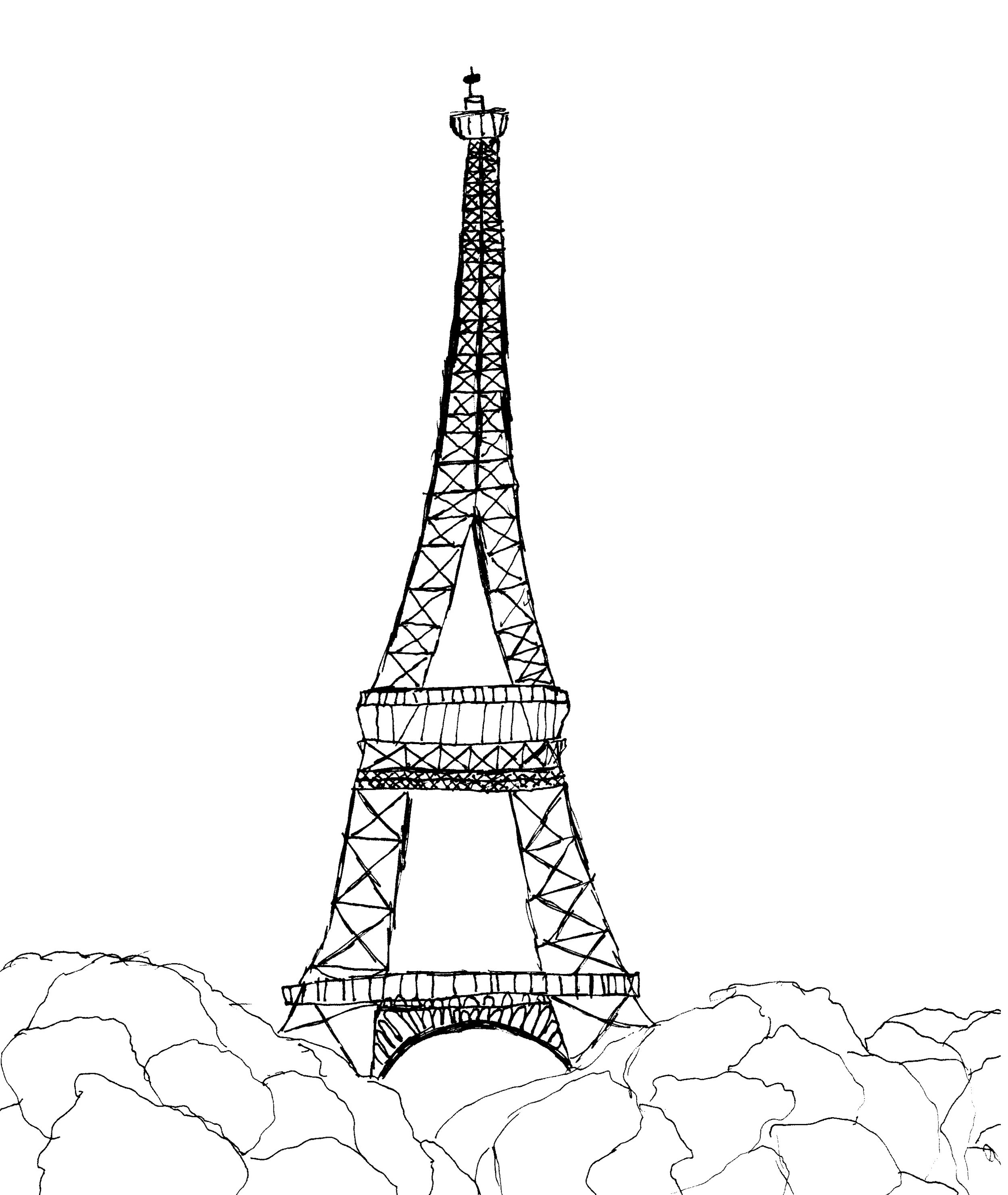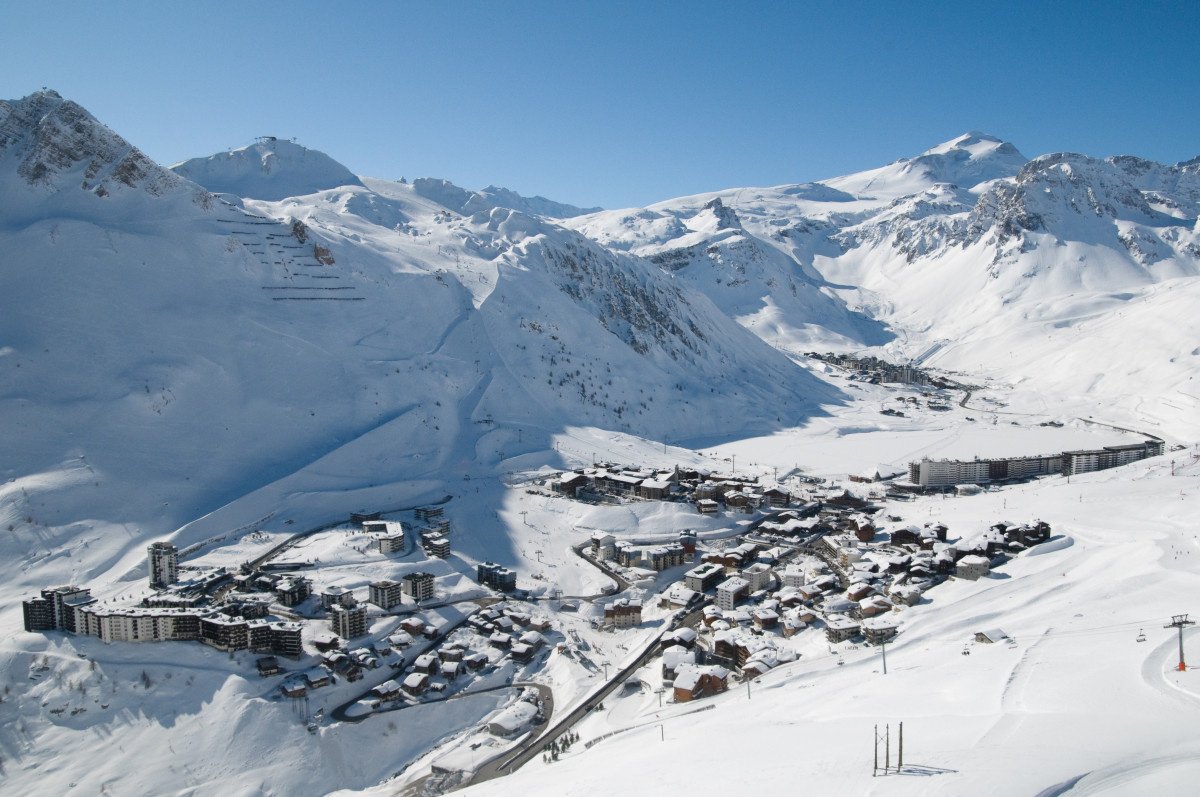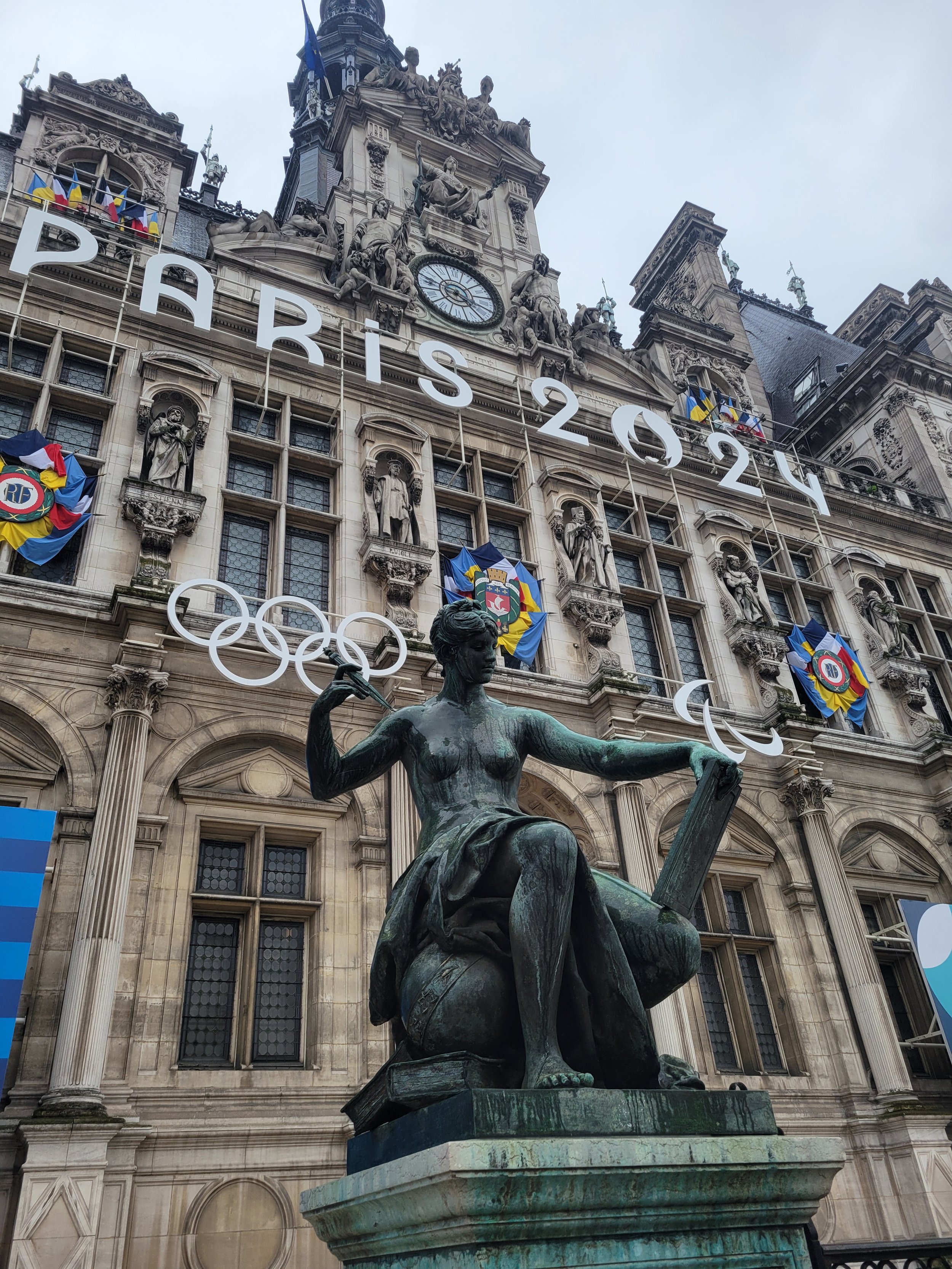Ouvrons Grand les Jeux
Paris 2024 resumes this week with the Paralympic Games Opening Ceremony set to proceed down the Champs-Élysées the Place de la Concorde on Wednesday, August 28. More than 4,000 athletes from nearly 200 countries will compete in 22 sports covering over 500 events in many of the same notable venues that recently hosted the Summer Olympic Games. Although this is the first time that Paris will host the Summer Paralympic Games, the city and region are more than ready to hold wheelchair tennis events at Roland Garros, para-swimming at the Paris La Défense aquatic arena, the swim leg of triathlons in the Seine river, para-equestrian events at the Château de Versailles, tae kwon do and wheelchair fencing matches at the Grand Palais, wheelchair basketball games at Bercy Arena, football games at the Eiffel Tower, and more.
Sir Ludwig Guttmann presents the gold medal to 1968 Paralympics Archery champion Tony South of Australia. Image credit: Australian Paralympic Committee, CC BY-SA 3.0, via Wikimedia Commons
The first Paralympic Games were held in Rome in 1960 the week after the Summer Olympic Games but were then called the International Stoke Mandeville Games. Neurologist Sir Ludwig Guttmann implemented sport as part of the Stoke Mandeville Hospital rehabilitation program for World War II veterans, primarily pilots with spinal cord injuries. When London hosted the 1948 Olympic Games, Guttmann was inspired to organize a wheelchair archery competition with other London area hospitals around the same time. The concept of accessible sports began to spread and in 1952, the British athletes were joined by Dutch and Israeli competitors in archery and javelin, transforming the event into the Annual International Stoke Mandeville Games. The 1960 competition was held in Rome the week after the Summer Olympic Games closing ceremony with 400 wheelchair athletes from 23 countries competing in eight sports. It was the first time for the Games to take place outside of England and include participants who had not been in the military.
Inclusion efforts gained steam as various international organizations were established to expand access beyond wheelchair athletes to include people with visual impairments, cerebral palsy, or amputations. A succession of alliances ensued until the International Paralympic Committee (IPC) was founded in September 1989. The term ‘Paralympic’ combines ‘para’ from Greek, meaning ‘alongside’, with ‘Olympic’, and was officially adopted by the International Olympic Committee (IOC) in 1984. The first Winter Paralympic Games were held in Örnsköldsvik, Sweden, in February 1976. Nearly 200 athletes from sixteen countries competed in several categories of Alpine and Nordic skiing while sled racing was held as a demonstration sport. That summer, the ‘Torontolympiad’ welcomed more than 1,600 competitors from 41 nations, expanding to include amputees and visually impaired athletes as well as adding shooting and goalball to total thirteen sports.
Tignes Val Claret, France. Image credit: Tonkie, CC BY-SA 3.0, via Wikimedia Commons
Seoul, Korea in 1988 and Tignes-Albertville, France in 1992 were the first cities to host both the Olympic Games and Paralympics in the same year. In Seoul, the French team earned 140 total medals, 46 of them gold. French wheelchair racers excelled with Mustapha Badid winning four gold and one silver medal and Farid Amarouche taking three golds and three silvers. In 1992, the first time that the Paralympics were held on French soil, French Winter Paralympians earned 19 overall medals, six of them gold. Among the 365 athletes from 24 nations competing in Alpine skiing and the Nordic skiing events of biathlon and cross-country skiing, French Alpine skiers Lionel Brun and Stéphane Saas each won a pair of gold medals while teammates Jean-Yves Arvier and André Favre took the gold in their respective cross-country skiing events. Not only did Arvier medal in multiple Winter Paralympics, he earned two bronze medals for Athletics (track and field) from the 1988 Summer Paralympics.
Hôtel de Ville, Paris, France. Image credit: Kathy Hymson
However, the most decorated French Paralympian is Béatrice Hess, who earned a whopping 25 Paralympic swimming medals (20 gold) over five Paralympic Games from 1984 through 2004. Just as Guttmann had envisioned for his patients, Hess took up swimming as part of physical therapy and blossomed. She won all four races she entered in the 1984 Stoke Mandeville & New York 1984 Paralympic Games and remained at the top of her sport for two decades, returning to pool competition after getting married and having children to not only medal but set world records. Hess also was selected to be the flagbearer for France twice and serves as a member of the Federal Committee of the French Disabled Sports Federation and Women and Sport Commission of the International Olympic Committee.
Hess was in Athens, Greece earlier this year to participate in the Olympic torch relay and is taking part in the Paralympic torch procession from Stoke Mandeville to France. The flagbearers for France, Nantentin Keïta (track) and Alexis Hanquinquant (triathlon), will lead in 236 French Paralympians competing in all 22 sports. Since 2001, aspiring host cities bid for both the Olympic and Paralympic Games to be held in the same year under the concept of “One Bid, One City”, deepening the collaboration between the IOC and IPC. The motto for the Paris 2024 Paralympics, “Ouvrons Grand les Jeux” (Games Wide Open) is a play on the phrase “ouvre grand les yeux” (eyes wide open) to emphasize the welcoming and inclusive nature of the Paralympic Games as well as the athletic prowess and character of Paralympians from all corners of the world.
Jeu de français
The continuation of Paris 2024 will be broadcast across the NBC family of channels (NBC, CNBC, USA Network, Peacock) in the United States, which is sending a delegation of 130 athletes to the Paralympic Games. As they and thousands of others compete in iconic settings around the Paris region, see if you can pick up enough information about the Paralympic movement to ace the following quiz.
Subscribe to our newsletter to receive Art de vivre posts, information about courses, Conversation Café, special events, and other news from l’Institut français d’Oak Park.




